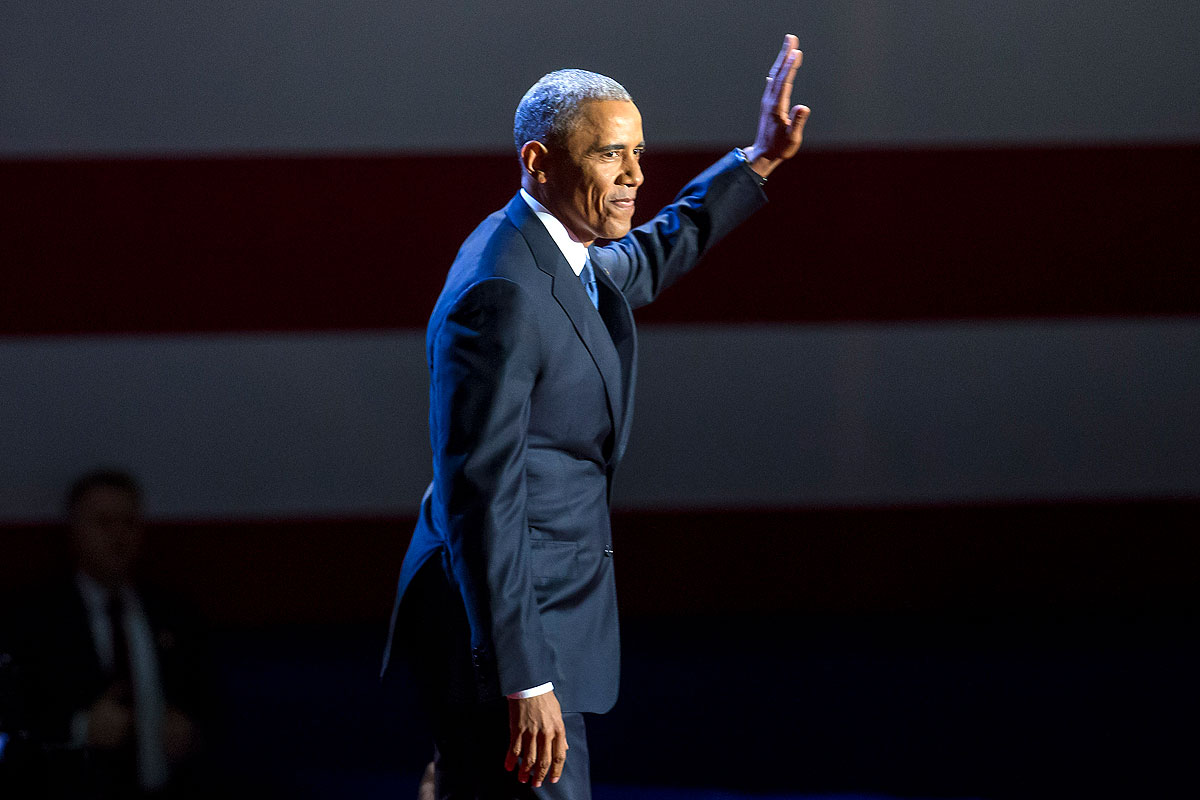After exiting the White House, the former president of the United States ghosted, taking an extended vacation that included Palm Springs, French Polynesia, and Richard Branson's private island. Now he's back to work—on the kind of paid speeches that have become commonplace for major politicians.
But in between his travels and his post-presidency freelance oratory, Barack Obama stopped in at his old employer, the University of Chicago, to share a stage with a diverse group of young people from Chicago—a Kenwood Academy and Chicago State alumnus; students from Roosevelt University, Loyola, and the University of Chicago; a Kenwood senior; and local organizer Harish Patel, the only 30-something among them.
Their presence revealed a bit about how the Obama post-presidency will take shape. "Although there are all kinds of issues that I care about," he said, "the single most important thing I can do is … prepare the next generation of leadership to take up the baton and take their own crack at changing the world."
He set up the idea after a brief introduction about his own considerable but drifting ambitions as a 20-something, describing how he'd come out of school with the desire to change the world and ending up on the South Side in the retreating shadow of its steel mills and the problems they left behind. "I tried for three years to do something about it," Obama said, "and I'm the first to acknowledge that I did not set the world on fire, nor did I transform these communities in any significant way, though we did some good things. But it did change me. This community gave me more than I could give in return."
After that, Obama mostly listened to his guests, asking them questions about what drives them in their own forms of public service, where they get their political information, and how they're navigating the path he was on at their age.
"So the question then becomes, how can we create pathways for them to take leadership, for them to get involved?" Obama said. "Are there ways in which we can knock down some of the barriers that are discouraging young people about a life of service? And if there are, I want to work with them to knock down those barriers."
The direction in which he pushed the conversation, though, hearkened back to his first presidential campaign: political polarization. "When I said in 2004 that there were no red states or blue states, there are the United States of America, that was an aspirational comment," Obama said to polite laughter, though he maintained that was true on an individual level and was only lost at the political level, due to money, gerrymandering, and voter cynicism that depresses voter turnout.
His questions reflected that continued aspiration, reflecting common anxieties among the political class while remaining nonpartisan and largely apolitical (and, as is typically the case with ex-presidents, refraining from commenting on the current officeholder).
"The mediating institutions, the unions, the churches, the PTA groups, the Rotary Club, a lot of the voluntary organizations that used to exist… those have declined," he said. "The statistics show that people have become less likely to be involved with various organizations in their community than they used to be. What that means is that people don't have some of the same habits of being together on a common project than they used to. We've become a more individualistic society."
He put some of this on the media, taking a genteel and roundabout path to the election post-mortems that have become familiar: "20, 30 years ago, everybody had the same information. We had different opinions about it, but there was a common baseline of facts, and the internet in some ways has accelerated this sense of people having entirely separate conversations. If this generation is getting all of its information through its phones, you really don't have to confront people who have different opinions, or different experiences, or outlooks. If you're a liberal, you're on MSNBC, if you're a conservative, you're on Fox News. You're reading the Wall Street Journal, or you're reading the New York Times…. And the internet's worse."
Obama and his panelists focused on talking face to face to bridge divisions that many perceive to have worsened during his presidency, a difficult legacy for someone whose aspirational line about red states and blue states still defines his career. And his hints about his post-presidential life suggest he's returning to his origins in community organizing and local and state public service—he spoke fondly about doing retail politics in Illinois and Iowa to overcome perceptions about him—in order to address the unfinished aspects of his presidency.



